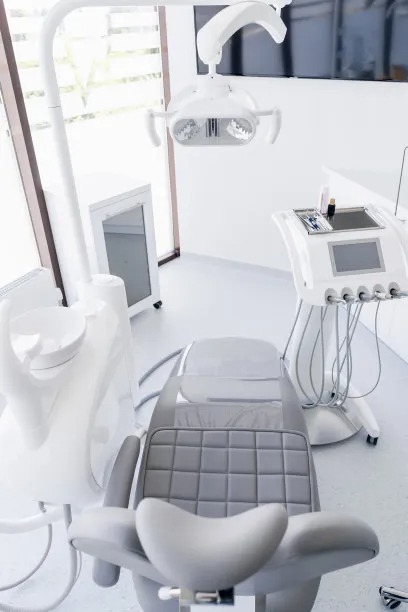Summary: Extracting a tooth, though often viewed with anxiety, plays a crucial role in preserving overall dental health. This article delves into the need for tooth extraction due to factors like decay, overcrowding, and the effects of wisdom teeth. It examines the connection between a healthy mouth and its broader implications for individual health, with a special focus on potential future oral care strategies. Beyond immediate dental interventions, understanding these connections can inform preventive care and improve long-term outcomes for patients. The impact of tooth extraction extends beyond simple removal; its foundational in maintaining a balanced oral ecosystem.
1. Reasons for Tooth Extraction

One of the most common reasons for tooth extraction is severe dental decay. When a cavity progresses beyond the point of restoration, extraction becomes necessary to prevent further complications. Untreated cavities can lead to infections, impacting not just oral health but also overall well-being. By removing a decayed tooth, we can mitigate the risk of spreading infection and safeguard adjacent teeth.
Another significant reason is overcrowding. In many cases, a person’s mouth may not have enough space to accommodate all their teeth, leading to misalignment and other dental issues. Tooth extraction can provide the necessary room for proper alignment, making orthodontic treatment more effective. This is particularly important for adolescents who are undergoing braces treatment, as space is vital for the teeth to shift into their correct positions.
Wisdom teeth, or third molars, frequently require extraction due to their tendency to become impacted. When there’s insufficient space for these teeth to erupt, they can cause pain, swelling, and even damage to neighboring teeth. Extracting wisdom teeth can prevent these issues and is often a preventative measure employed by dental professionals during routine examinations.
2. Impact on Overall Dental Health
Tooth extraction significantly influences overall dental health. When a tooth is removed, the surrounding oral structures require careful consideration. Proper aftercare is essential to ensure healing is effective, thus preventing complications like dry socket or chronic pain. Following an extraction, patients need to adhere to instructions provided by their dentist, including dietary restrictions to promote optimal recovery.
Moreover, the removal of problematic teeth can result in enhanced dental hygiene. With fewer teeth to brush and floss around, patients can maintain better oral hygiene practices, ultimately reducing the risk of future dental issues. This can lead to a healthier mouth overall, as the bacterial load diminishes and the risk of periodontal disease declines.
Finally, the mental health aspect of dental extractions cannot be overlooked. Many individuals experience relief post-extraction, especially if the tooth was causing pain or discomfort. This newfound comfort can lead to increased motivation to maintain good oral hygiene, which is a vital component of overall health. Mental well-being is an important aspect of holistic health, linking dental health to broader life quality considerations.
3. Long-term Oral Care Strategies
After tooth extraction, it is imperative to adopt long-term oral care strategies. This includes regular dental check-ups to monitor oral health and identify potential issues before they escalate. Dentists can provide tailored care plans, ensuring that patients remain vigilant about their dental hygiene. Early detection of problems can contribute to better outcomes and prevent further extractions.
Additionally, patients are encouraged to invest in preventive measures such as dental sealants and fluoride treatments. These interventions can play a critical role in preserving remaining teeth and preventing decay. Educating patients about these options will empower them to take active roles in their oral health, fostering a proactive approach to care.
Finally, a balanced diet is crucial for maintaining dental health post-extraction. Foods rich in vitamins and minerals will support recovery and promote healthy gums and teeth. Incorporating more fruits, vegetables, and whole grains into the diet while minimizing sugar consumption can significantly benefit long-term oral health, reducing the risk of complications arising from other dental issues.
4. Future Implications for Dental Care
The implications of tooth extraction extend into future dental care strategies. As we understand more about how dental health impacts overall health, it becomes paramount for dental professionals to emphasize prevention. This involves not just addressing issues as they arise but adopting a more holistic approach to patient care. Building strong dentist-patient relationships will facilitate communication around preventive measures, improving adherence to care plans.
Additionally, advancements in dental technology are enhancing the extraction process, reducing patient discomfort, and improving recovery times. Minimally invasive techniques and sedation dentistry options provide patients with more comfortable experiences, encouraging timely dental visits. This technological growth promises to reshape perceptions of dental care, making it more accessible and patient-friendly.
Through public health initiatives aimed at improving oral health education, we can foster a community that prioritizes prevention over remediation. By raising awareness about the significance of regular dental visits and proper oral care, individuals can build healthier habits that last a lifetime.
Summary:
The role of tooth extraction in maintaining overall dental health is crucial. Through managing decay and overcrowding, patients can preserve their oral integrity, ensuring long-term wellness. The implications of extractions extend beyond the dentists chair, influencing future oral care strategies that prioritize prevention and education.
This article is compiled by Vickong Dental and the content is for reference only.
Vickong Dental
Vickong Dental is a large medical group established in Hong Kong in 2008 by professors from well-known medical universities in Guangdong and Hong Kong, as well as medical doctors from key national '985' universities (including Master's supervisors and senior professors). The chain of branches brings together expert dentists with PhDs and Master's degrees from Hong Kong and Mainland China, committed to providing high-quality dental treatment.
"Vickong Dental Practices the University Motto of 'Healing and Serving Society,' with a Stable Operation for Sixteen Years. It Has Been honored with Hong Kong Enterprise Leaders's Choice,' and is a Global Trusted Implant Center for the Nobel Implant System. Recommended by Hong Kong Metro Broadcast and Guangdong Television, it Serves Customers from Over Thirty Countries and Regions, Gaining the Trust and Favor of Citizens from the Guangdong-Hong Kong-Macau Greater Bay Area and Surrounding Cities.

Thousands of customers' unanimous praise
The most recognized and highly recommended dental service by customers in the Guangdong-Hong Kong-Macau Greater Bay Area
We Ensure You Receive Detailed Care and Attention Here
Hong Kong standards, Shenzhen prices, Your Trusted English-speaking dentists

Vickong Dental Medical-Grade Instrument Disinfection Process
Vickong Dental Medical-Grade Instrument Disinfection Process

Vickong Dental Chain: A Warm and Comfortable Environment for Treatment






Appointment Hours

Q&A
Why choose Vickong Dental?
Vickong Dental practices the university motto 「Medicine to Benefit Society」, with each branch bringing together highly qualified dentists with doctoral and master’s degrees from Hong Kong and the Mainland, and has maintained seventeen years of steady operation。Recipient of 「2024 Hong Kong Enterprise Leaders Brand」, 「2025 Hong Kong Enterprise Leaders Brand」, a Nobel Biocare Global Trusted Implant Center, and a brand recommended by Metro Radio Hong Kong and Guangdong TV。
To date, we have served customers from more than thirty countries and regions,earning exceptionally high word-of-mouth recognition and trusted recommendations from residents across the Guangdong-Hong Kong-Macao Greater Bay Area and surrounding cities
We have eight major branches in Zhuhai、Shenzhen,and a consultation and service assurance center in Hong Kong,so you can book a free consultation at any time for any questions,which is very reassuring.
If I do not accept the quotation after the CT scan, will I be charged??
No! As long as the actual treatment has not started, you will not be charged any fees.
Will there be any additional charges during the treatment process?
No, there won’t be any additional charges. Before treatment begins, we will clearly explain the treatment plan and its corresponding fees. Only after the patient agrees and signs the consent form will we proceed with the dental service.
Can I pay in Hong Kong dollars?
Yes. Vickong Dental accepts payment in Hong Kong dollars. The amount will be converted based on the exchange rate of the day, and the applicable rate will be clearly communicated to you in advance.
Can I reschedule my appointment at any time?
Yes. Please contact us via **WeChat** or **WhatsApp** as early as possible, providing your original appointment time and details, along with your preferred new date and time slot for rescheduling.













